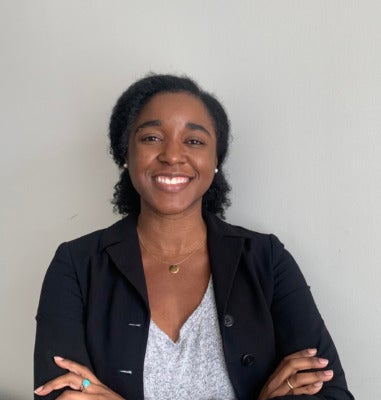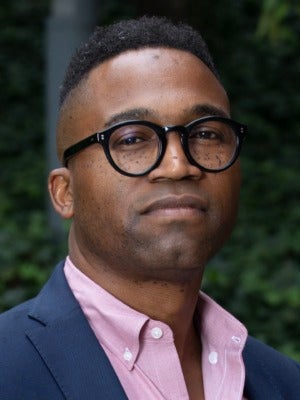How Unpaid Bills End Up in Court: The Rise in Debt Collection Litigation and What States Can Do
The system for collecting unpaid debts is broken. One in three American adults had debt in collections prior to the pandemic in 2019 — and during the pandemic, almost half of Americans reported facing serious financial problems. The leading cause for debt collectors to contact consumers for non-loan debt include medical bills, telecom bills, and utility bills — and many times, people are unaware they owe a debt until a collector calls.
The consequences of burdensome debt are clear: consumer debt threatens people’s financial security by making it harder to stay housed, obtain credit, and build wealth. What is far less discussed is this: for 68 million people across America with debt in collections, the average amount was less than $2,000.
Some states and advocates are pioneering ways of fixing the broken system of debt collection litigation. To do this, they must first understand the common ways the system fails individuals, and the state and federal solutions to ensure that debt is legitimate; that defendants know they are being sued; and that judgments do not permanently damage debtors’ financial security.
The Aspen Institute Financial Security Program is pleased to publish A Financial Security Threat in the Courtroom: How Federal and State Policymakers Can Make Debt Collection Litigation Safer and Fairer for Everyone. A simple, non-technical explanation of debt collection litigation, including a review of the process and of the impacts of debt and debt collection litigation in the lives of people in America.
Join the Aspen Institute Financial Security Program and The Pew Charitable Trusts on Thursday, October 28 at 12:15 p.m. Eastern for a conversation on what we all should understand about the debt collections litigation system, and what we can do to create better outcomes for people across America.
This event is made possible with support from Annie E. Casey Foundation.
Speakers
 Dyvonne Body, Community Development Associate, Federal Reserve Bank of New York
Dyvonne Body, Community Development Associate, Federal Reserve Bank of New York
As a writer, researcher, and advocate, Dyvonne is dedicated to using data to explore the connections between financial security, economic justice, and racial and gender equity. In May 2021, Dyvonne joined the Community Development Unit at the Federal Reserve Bank of New York, where she advances bold solutions to household well-being, climate adaptation, and the social determinates of health. Prior to joining the New York Fed, Dyvonne developed research on key financial challenges facing low- to moderate-income households and households of color at the Aspen Institute Financial Security Program. She has also served in research roles at the U.S. Department of Education and the Georgia Governor’s Office of Planning and Budget.
Dyvonne holds a master’s degree in public policy and management from Carnegie Mellon’s Heinz School of Public Policy and a bachelor’s degree in international affairs from the Georgia Institute of Technology. She is a proud Public Policy and International Affairs (PPIA) Fellow and currently resides in New York City.
 Sohrab Kohli, Senior Manager and Markets Lead, Policy and Market Solutions, Aspen Institute Financial Security Program
Sohrab Kohli, Senior Manager and Markets Lead, Policy and Market Solutions, Aspen Institute Financial Security Program
Sohrab Kohli is a Senior Manager and the Markets Lead on the Policy and Market Solutions team at the Aspen Institute Financial Security Program (Aspen FSP). In his role, Sohrab helps develop and execute Aspen FSP’s market-oriented strategy related to savings, credit and debt solutions, housing, and other critical financial needs. Through Aspen FSP’s platform, Sohrab seeks to drive meaningful dialogue with public and private sector leaders to address market gaps and advance inclusive solutions.
Before joining the Aspen Institute in May 2020, Sohrab was a Senior Manager at the Financial Health Network (formerly known as the Center for Financial Services Innovation). There, he spent over six years leading projects across the organization’s consulting, research, network, innovation, and policy practices. Sohrab’s work spanned a range of topics, including consumer credit, fintech innovation, workplace wellness, community-based programs, and nonprofit partnerships.
Prior to working at the Financial Health Network, Sohrab was a management consultant at PricewaterhouseCoopers (PwC) focused on banking, insurance, and financial regulation. He is a graduate of the University of Chicago, where he earned a Bachelor of Arts degree in Economics and Political Science.
 The Honorable Alex McVeagh, Tennessee, Hamilton County General Sessions Court Judge
The Honorable Alex McVeagh, Tennessee, Hamilton County General Sessions Court Judge
Alex McVeagh is a General Sessions Court judge in Hamilton County (Chattanooga), Tennessee. He has both civil jurisdiction (claims worth up to $25,000) and misdemeanor criminal jurisdiction. A native of Lafayette, Louisiana, McVeagh obtained his bachelor of science and juris doctor degrees from Vanderbilt University. Prior to his 2017 appointment to the bench by TN Governor Bill Haslam, McVeagh worked as a litigator at Chambliss Law Firm, as law clerk for the TN Senate Judiciary Committee, and as an analyst and legislative liaison for the TN Public Defenders Conference.
McVeagh currently serves on the Tennessee Supreme Court’s Access to Justice (ATJ) Commission, which aims to address and eliminate barriers to justice for all Tennesseans. He is the first and only sitting judge to serve on the commission, where he helped develop an online dispute resolution (ODR) pilot program in Chattanooga to assist healthcare providers and patients in resolving outstanding medical debt before a lawsuit is filed. McVeagh also serves on the Tennessee Supreme Court’s Technology Oversight Committee, which drafted standards for electronic filing in all Tennessee courts and which regularly reviews applications from jurisdictions seeking to implement electronic filing.
McVeagh also serves on the Tennessee Governor’s Criminal Justice Reform Task Force, which studies current policies and possible solutions to reduce nonviolent jail populations and criminal recidivism, and to increase reentry programs for eligible offenders. He also founded and presides over Hamilton County’s misdemeanor drug recovery court.
McVeagh serves his community as an active member of the downtown Chattanooga Rotary Club, as president of the young lawyer division of the Chattanooga Bar Association, and as East Tennessee governor of the Tennessee Bar Association’s young lawyer division. He has organized Hamilton County’s local high school mock trial competition for many years, and continues to help facilitate numerous pro bono legal clinics, including courthouse expungement clinics and clinics that provide free estate planning documents to military veterans, police officers, firefighters and other first responders.

Erika Rickard, Project Director, Civil Legal System Modernization, The Pew Charitable Trusts
Erika Rickard leads Pew’s work to modernize the nation’s civil legal system, a project to leverage technology innovation, policy reform, and process improvement to better serve people navigating courts without a lawyer. Before joining Pew, Rickard directed field research at Harvard Law School’s Access to Justice Lab, which conducts rigorous studies on access to justice and court administration. Rickard was the first Access to Justice coordinator for Massachusetts, where she developed and implemented new policies and programs in the areas of language access, technology, and resources for people without counsel. She holds a bachelor’s degree in public policy from Mills College and a juris doctor from Harvard Law School.

Professor Frederick F. Wherry, Townsend Martin, Class of 1917 Professor of Sociology, Princeton University
Frederick “Fred” Wherry is currently the Townsend Martin, Class of 1917 Professor of Sociology at Princeton University, the Director of the Debt Collection Lab (debtcollectionlab.org), and the Founding Director of the Dignity + Debt Network (a partnership between Princeton and the Social Science Research Council: dignityanddebt.org). He is also the Co-PI of the Higher Education Race
and the Economy (HERE) Lab, based at the University of California at Merced. Professor Wherry is the author or editor of nine books, including Credit Where It’s Due: Rethinking Financial Citizenship (with Kristin Seefeldt and Anthony Alvarez), The Oxford Handbook of Consumption (with Ian Woodward), Money Talks (with Nina Bandelj and Viviana Zelizer), and Measuring Culture (with John Mohr, Chris Bail, and others).
He has served in advisory roles at the Boston Federal Reserve, the Aspen Institute’s Financial Security Program, and the Mission Asset Fund, and was elected as the president-elect of the Eastern Sociological Society and was the 2018 president of the Social Science History Association. He is currently on the board of directors for the Change Machine and on the Executive Committee of the Princeton Alumni Council. He serves on the advisory board for the Race in the Marketplace (RIM) Network. At Stanford University Press, he co-edits the book series Culture and Economic Life. He was an undergraduate student and a Morehead-Cain Scholar at the University of North Carolina at Chapel Hill. He then earned his Master’s in public affairs at the School of Public and International Affairs and completed his doctorate in sociology at Princeton University in 2004. After a postdoctoral fellowship at the University of Pennsylvania, he served as a faculty member at Michigan, Columbia, and Yale, before returning to Princeton.